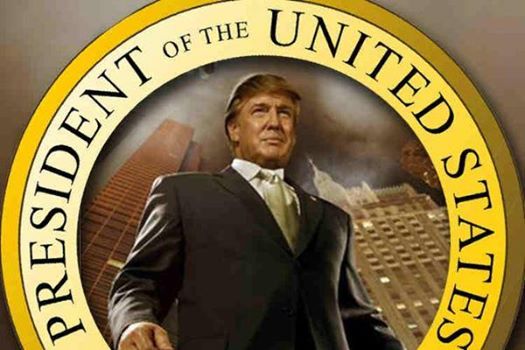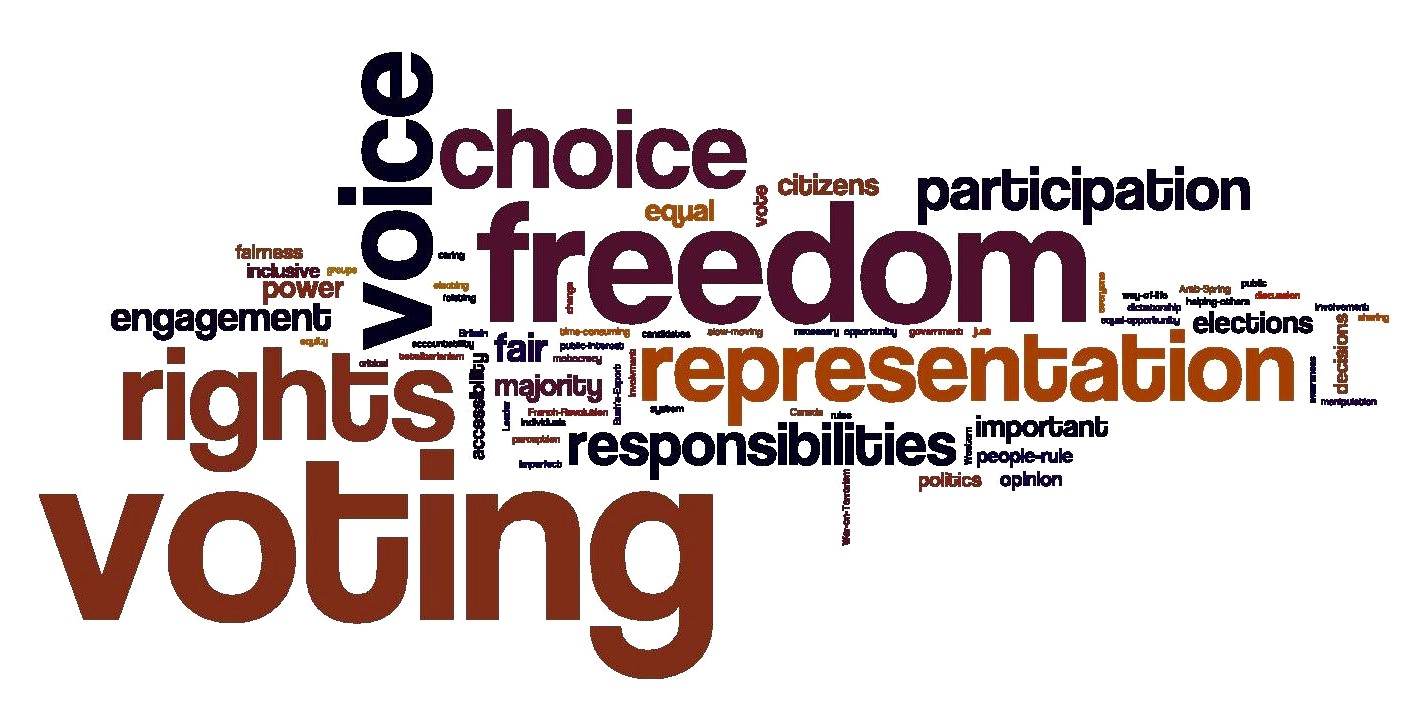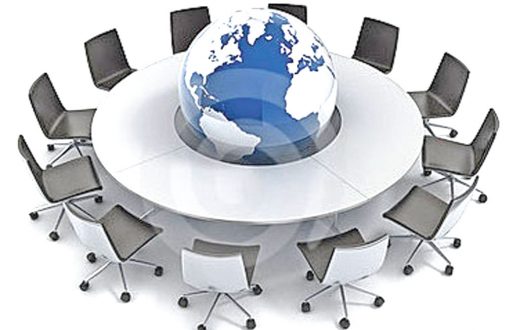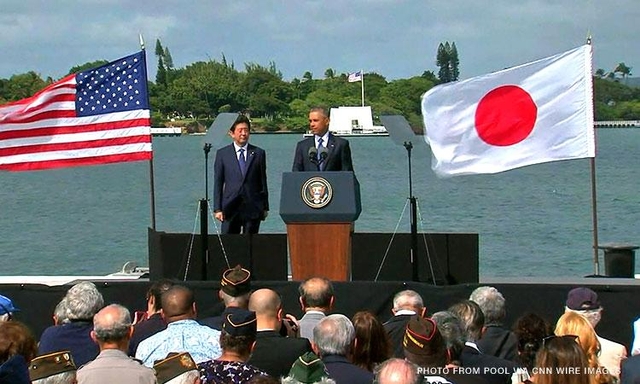Under President Vladimir Putin, Russia has sought to expand its power and international clout in recent years, often in ways that have heightened tensions with the U.S. Russian hackers have penetrated networks all over the world, including the highest levels of the U.S. government. Russia has also threatened numerous neighbors in recent years, backing separatists in eastern Ukraine and annexing Crimea in 2014.
This is an article available on : http://graphics.wsj.com/elections/2016/donald-trump-hillary-clinton-on-foreign-policy/
Mr. Trump has floated the idea of creating a new alliance with Russia, saying a reset of relations is necessary to help ease tensions in Syria and elsewhere.President Putin has said complimentary things about Mr. Trump, which the GOP candidate has said expresses good faith. The perceived warmth between the two men, as well as the close ties between Moscow and some of Mr. Trump’s top advisers, have led some in the U.S. to posit that a Trump presidency would be a boon to Mr. Putin.
Mr. Trump has rejected the assertion by some Democrats that Russia hacked into the Democratic National Committee’s network and leaked emails in an effort to help the GOP nominee. In July, he invited Russia to unearth some of Mrs. Clinton’s emails from her time as secretary of state, a statement that alarmed lawmakers from both parties.
Mrs. Clinton has called Mr. Putin a “bully,” and has described the relationship between the U.S. and Russia as complicated. During the 2008 presidential election, she said Mr. Putin “was a KGB agent, by definition he doesn’t have a soul.” Mr. Putin later responded by saying, “I think at a minimum it’s important for a government leader to have a brain.” As secretary of state, she worked to broker more cooperation between the two countries. In 2009, she posed with Mr. Putin for a photo-op in which they pushed a big, red “reset” button.
By the end of her tenure, however, she wrote a private memo to the president warning that relations with Russia had hit a low point and the “reset” in relations was over, according to people who saw the document. In reaction to Mr. Trump’s call in July for Russia to seek out her emails, a top foreign-policy adviser to the Clinton campaign said “this has to be the first time that a major presidential candidate has actively encouraged a foreign power to conduct espionage against his political opponent.”

CHINA
The U.S. and China have had a complicated relationship for decades, as both nations are economically entangled and seen as super powers in different regions of the world. The U.S. is frequently at odds with China on issues like trade and foreign policy, but U.S. leaders have often stopped short of attempting to punish the communist country for its behavior, fearful that it could make problems worse. China is also one of the few countries that has influence in some of the most repressive parts of the world, such as North Korea, and it also holds a tremendous amount of U.S. debt.
Mr. Trump has bashed China persistently from his opening speech as a candidate, describing it as one of the U.S.’s top adversaries, particularly when it comes to economic policy. Mr. Trump says he would label China a currency manipulator, crack down on hacking, and threaten the Chinese government with steep tariffs if it doesn’t agree to rewrite trade agreements.
He would also expand the U.S.’s military presence in the South China Sea as a deterrent to China’s territorial claims to artificial islands there. He said he would toughen rules against the theft of intellectual property and combat subsidies China offers to boost exports. He opposes the proposed Trans-Pacific Partnership, the trade agreement which includes the U.S., Japan and 10 other countries.
Mrs. Clinton has been a constant critic of China’s human-rights record. She has called the current U.S./China dynamic “one of the most challenging relationships we have,” but she has also said the two countries share a “positive, cooperative, and comprehensive relationship.”
During her time as secretary of state, Mrs. Clinton said she pushed hard for China to agree to new greenhouse-gas emission standards. She also gave a 2010 speech that focused on internet freedom and criticized China, Tunisia, and Uzbekistan for having “stepped up their censorship of the internet.” The speech mentioned China 10 times. She was one of the U.S. officials in 2009 who launched an annual meeting between the U.S. and China focused on strategic and economic issues.

EUROPE AND BREXIT
The U.K.’s plan to leave the European Union is just the latest shift of tectonic plates there impacting everything from the economy to immigration. Some parts of Europe have never fully recovered from the financial crisis, and a migration surge from Syria and elsewhere has drawn different responses from different countries.
Mr. Trump has been sharply critical of European leaders for not doing more to combat the flow of terrorists across their borders, saying France and Belgium in particular have laws that made it difficult for national security officials to thwart recent attacks. He has said restrictions on gun ownership in these countries have prevented innocent civilians from protecting themselves during terror attacks.
Mr. Trump engaged in a testy exchange with then-U.K. Prime Minister David Cameron over Mr. Trump’s proposal to ban the entry of Muslims into the U.S. He lauded British voters’ decision to leave the European Union. He has also said Germany and other countries should pay the U.S. more money for military protection, or risk losing U.S. support.
Mrs. Clinton speaks frequently about supporting U.S. allies in Europe, marking a contrast with Mr. Trump. But she has also said Europeans should do more to monitor the flow of foreign fighters back to Europe from Iraq and Syria, saying it poses terror threats. She made more than 50 visits to European countries as secretary of state, and has numerous relationships with leaders and diplomats there. Mrs. Clinton warned against the U.K. exiting the European Union, as her campaign had said Europe needed to remain united and that the British voice is an essential part of the EU.

IMMIGRATION AND MEXICO
Immigration has emerged as one of the most divisive issues of the 2016 campaign, with Republicans reversing course from an earlier push to enact a bipartisan overhaul of immigration rules. Immigration from Mexico and Latin America has traditionally been a flashpoint in U.S. politics, but in recent months the focus has shifted to immigration rules for people fleeing places like Syria and other unstable regimes in the Middle East.
Mr. Trump has called for building a roughly 1,000 mile wall, financed by Mexico, to secure the U.S.’s southern border. Until this wall is built, he has promised to “impound” all remittance payments “derived from illegal wages” sent from people in the U.S. to Mexico. He wants to triple the number of Immigration and Customs Enforcement officers, and has also proposed deporting the roughly 11 million undocumented immigrants believed to be currently living in the U.S. and enhancing penalties for people who overstay visas.
On Aug. 31, Mr. Trump made a brief visit to Mexico City and met with Mexican President Enrique Peña Nieto, who he praised as a friend. Hours after the meeting, their proxies launched a bitter feud over whether Mexico would pay for Mr. Trump’s proposed border wall. Mr. Trump said the issue hadn’t been discussed, but the Mexican president said he made clear in their meeting that Mexico wouldn’t pay for any wall.Mr. Trump has called for ending “birthright citizenship,” which is the legal process for granting citizenship to anyone born in the U.S. He has said he will overturn the North American Free Trade Agreement, in part because he believes Mexico is using it to build a huge trade surplus against the U.S. But while in Mexico City, he softened that position and said he supported “updating” the agreement to make it more beneficial for both sides.
Mrs. Clinton has called for a comprehensive immigration overhaul, including a pathway to citizenship for those in the U.S. illegally, aside from violent criminals. She supports executive actions under the Obama administration that seek to protect millions of people from deportation, including young people brought to the U.S. illegally as children and parents of U.S. citizens. Mrs. Clinton used to say positive things about NAFTA but recently has been more circumspect, saying it helped some people and hurt others. Her main opponent in the Democratic primary, Sen. Bernie Sanders of Vermont, hammered her for her past support of NAFTA, as has Mr. Trump.

IRAQ
President Barack Obama has tried to pull back the U.S.’s involvement in Iraq, but the country has splintered. Islamic State has taken advantage of bloody jostling between the Sunnis, Shias, and Kurds and retained a foothold in Mosul for more than two years. Iran’s influence with Iraq’s government has complicated U.S. diplomacy, and Iraq’s security forces have proven incapable—and at times unwilling—to repel Islamic State on their own.
Mr. Trump has been critical of President George W. Bush’s decision to invade Iraq in 2003, saying it helped unleash a wave of instability in the Middle East that continues to sow chaos. Mr. Trump has said he opposed the invasion at the time, though critics have said his position on the matter wasn’t clear cut. He hasn’t specified what he would do to improve the situation in Iraq, though he has spoken frequently about working more closely with the Kurds.
Mrs. Clinton voted in 2002 as a senator from New York to authorize the use of military force against Iraq, a decision that opponents have used to attack her for years and that she has since apologized for. She visited Iraq just once as secretary of state, in April 2009. She has criticized the Iraqi national army for not doing more to secure the country and deter Islamic State, and praised Kurdish forces fighting in the north of Iraq. She has called for pressuring Iraq to “get its political house in order” and the creation of a national guard.

IRAN
Perhaps no country in the Middle East is expanding its influence as quickly as Iran, playing a role in the conflicts in both Iraq and Syria. Comments from Iranian leaders about destroying the U.S. and Israel and its past pursuit of nuclear weapons have made it a U.S. adversary for decades. The Obama administration has joined with several other top nations to broker a nuclear agreement with Iran if the Middle Eastern country abides by a number of conditions, and this deal remains a divisive foreign-policy issue on the presidential campaign.
Mr. Trump has been extremely critical of the recent nuclear agreement with Iran, saying the U.S. allowed Iran to access $150 billion in money that had been frozen. He has added that the White House received few concessions as part of the deal. He has proposed renegotiating the nuclear deal, though it’s unclear exactly how he would structure any agreement. He has called for doubling and tripling the sanctions the U.S. had historically placed on Iran as a way to force them toward more concessions. He has said he would “dismantle” the deal, but aides have said he would only seek to refine it. His precise plan is unclear.
Mrs. Clinton has struck a tougher stance than Mr. Obama with Iran. She has said she supports the recent nuclear agreement, but she criticized the Iranian government for its treatment of sailors who were detained after allegedly drifting into Iranian waters. She has said Iran continues to violate U.N. Security Council resolutions through its testing of ballistic missiles, and she has called for new sanctions against the country.
Mrs. Clinton was in the Obama administration during a historic thaw of relations between the U.S. and Iran. Mr. Obama wrote letters to Iran’s Supreme Leader Ayatollah Ali Khamenei during Mrs. Clinton’s time in office, and she has taken credit for beginning negotiations. She was also part of a historic increase in sanctions against Iran during the early years of the Obama administration, which supporters say helped force Iran to negotiate on its nuclear deal.

ISLAMIC STATE/SYRIA
When the terror network Islamic State, also known as ISIS, seized Raqqa in Syria in 2013, it set in motion a chain of events that reshaped how the U.S. and other countries view Muslims, confront terror, and interact with each other. Videos of gruesome beheadings and the extremist group’s use of social media to recruit and inspire acts of terrorism have upended decades of counterterrorism strategies, forcing U.S. and European officials to grasp for a new approach. The terror network’s geographic foothold is contracting but its ability to inspire terror attacks around the world makes it one of the world’s deadliest terror groups.
Mr. Trump has said he won’t give a fully detailed plan to defeat Islamic State because it would take away the element of surprise. But he has said he would “bomb the shit” out of the group’s oil operations. He said it could take 30,000 U.S. troops to defeat ISIS in the Middle East, but he hasn’t committed to deploying a force of that size.
To deal with suspected terrorists, he has proposed changing international rules that forbid the military’s use of torture. He also proposed killing the family members of terrorists to serve as a deterrent to others. He has backed away from some of these comments amid a backlash from some current and former military officials—but not fully. On Syria itself, he has said Syrian President Bashar al-Assad is “bad,” he stopped short of calling for his ouster. A key part of his Syria strategy appears to be giving Russia more flexibility to stabilize the region, as he’s said Moscow could be better positioned to influence changes there than the U.S.
Mrs. Clinton has said Sunni Muslims and Kurdish forces should play a bigger role in combating ISIS, and has also called for expanding U.S. airstrikes in Iraq and Syria to defeat the terror network. She has also called for combating Islamic State’s ability to use social media to recruit, train, and plan attacks, urging more cooperation from technology companies. She also has said the U.S. should play a bigger role in helping resolve the humanitarian crisis caused by a huge wave of migrants fleeing Syria.
The biggest difference between Mrs. Clinton and President Obama in this area is her push to create a no-fly zone over Syria, a move that would likely put the U.S. in direct conflict with Russia, which has bombed anti-Assad forces in the area. Mrs. Clinton has received criticism for comments she made in 2011 that suggested some U.S. officials from both parties viewed Mr. Assad as a “reformer.” She later said she was representing the opinion of others, not herself or the White House.

ISRAEL AND PALESTINIAN TERRITORIES
Chilly relations between President Obama and Israeli Prime Minister Benyamin Netanyahu have worsened in recent years, particularly over the White House’s nuclear agreement with Iran. The U.S. has traditionally had close ties to Israel, and this will be a major challenge for the next White House given all the instability in the Middle East.
Mr. Trump has advocated for more U.S. support for Israel, and worked to build bridges with Tel Aviv by slamming the nuclear deal with Iran. He made some in Israel nervous when he said he would work to remain neutral in any peace talks between Israeli and Palestinian leaders. He later softened his position, saying it would be very difficult to remain neutral. In March, he gave a speech to a meeting of the American Israel Public Affairs Committee in Washington, D.C., that helped to assuage some of their concerns about his commitment to their views. In his convention speech in Cleveland, he called Israel “our greatest ally in the region.”
Mrs. Clinton has criticized Mr. Trump’s approach to Israel, trying to align herself very closely with Israeli leaders in their push for security. She has said her relationship with Israeli security officials spans more than 25 years and she has defended steps the country has taken to protect itself from rocket attacks. She has called for boosting U.S. support for Israeli missile-defense systems. She also supports helping Israel with technology to detect tunnels that Hamas uses to send fighters and bombers into Israel from the Gaza Strip.

ISLAM AND MUSLIMS
The Sept. 11, 2001, terror attacks changed the way many Americans viewed Arab countries, and altered the lives of many unsuspecting Muslims living in the U.S. Over a decade later, the rise of Islamic State and the flood of Muslim migrants fleeing conflicts in the Middle East have created even more tension, with some calling for a rethink of the U.S.’s approach to the religion and others urging more cooperation.
In December, just days after a husband-and-wife team killed 14 people at a holiday party in San Bernardino, Calif., Mr. Trump proposed a “total and complete” ban on the entry of all Muslims into the U.S. until authorities “can figure out what is going on.” The proposal proved popular with many GOP primary voters, but sparked intense criticism from some Republican leadersand Democrats, who said it would be unconstitutional and impossible to enforce.
Mr. Trump has said the threats posed by Islamic extremists are too dangerous and that stark new measures must be put in place to protect the country. He has since backed off the blanket ban, suggesting some flexibility. “We’re going to look at a lot of different things,” he said in late May. “We have to be vigilant and we have to be tough and smart.” In July, speaking on “60 Minutes,” he said a Trump administration would ban entrants from “terror states and terror nations” and would engage in “extreme vetting” of Muslims seeking to come to the U.S. from other countries, a theme he reiterated in his speech at the Republican National Convention.
Mrs. Clinton has said banning the entry of Muslims into the U.S.–even the proposal of it–will alienate Muslim allies in the Middle East and harm U.S. relations. She has said the proposal is being used by Islamic State to recruit new terrorists. To help combat terrorism and better spot warning signs of radicalized youth, she said the government must do more to build alliances with Muslim community leaders in the U.S.

NORTH ATLANTIC TREATY ORGANIZATION
U.S. relations with the North Atlantic Treaty Organization mark one of the biggest differences between the two candidates, with Mr. Trump arguing that the U.S. is paying too much to keep the alliance afloat, and Mrs. Clinton portraying it as vital to U.S. interests in Europe.
Mr. Trump wants allies within NATO to pay more for the overall protection of Europe. He has suggested the U.S. might leave the alliance if that doesn’t happen during a Trump presidency. He also said NATO was obsolete and had to shift its focus away from Russian deterrence and more toward combating terrorism and dealing with migration flows.
Mrs. Clinton has said that leaving NATO would only embolden Moscow. She has praised the existence of the alliance and said the U.S. should do more to strengthen allies, particularly against Russian aggression. She has said the U.S.’s involvement with NATO serves U.S. interests by enhancing relationships with European countries and creating a large bloc of opposition to Russian expansion. She has said that NATO allies rallied to the U.S.’s assistance after the Sept. 11, 2001, terror attacks, and that the U.S. should be prepared to do the same.

NORTH KOREA
As the U.S. and other countries have focused on Islamic State, North Korea has continued the development of nuclear weapons and carried out numerous cyberattacks around the world. U.S. policy has been to slap North Korea with sanctions, support South Korea, and pressure China to force North Korea to change its behavior.
Mr. Trump says he would pressure China to crack down on North Korea’s development of nuclear weapons, and has called North Korea leader Kim Jong Un a “maniac.” But North Korean state media, using a propaganda website, has labeled Mr. Trump a “wise politician,” as he has said he would enter direct talks with Mr. Kim. Mr. Trump has also threatened to withdraw U.S. troops from South Korea, a shift that many in North Korea would likely embrace.
Mrs. Clinton has proposed toughening sanctions against North Korea to force it to abandon its nuclear program, using the recent Iran deal as a model. While she was secretary of state from 2009 until Feb. 1, 2013, the Obama administration had mixed success in cracking down on North Korea.
Despite economic sanctions, North Korea conducted a nuclear-weapons test on May 25, 2009, four months after Mrs. Clinton took office. In February 2012, the Obama administration and North Korea entered into an agreement known as the “Leap Day” deal that allowed the U.S. to provide food aid to North Korea in exchange for a moratorium on the enrichment of uranium and any new missile testing. The agreement was short-lived, however. North Korea conducted another nuclear test in February 2013, shortly after Mrs. Clinton left the Obama administration. In April, the country launched a rocket that the U.S. said violated the agreement, and the food aid was canceled.








